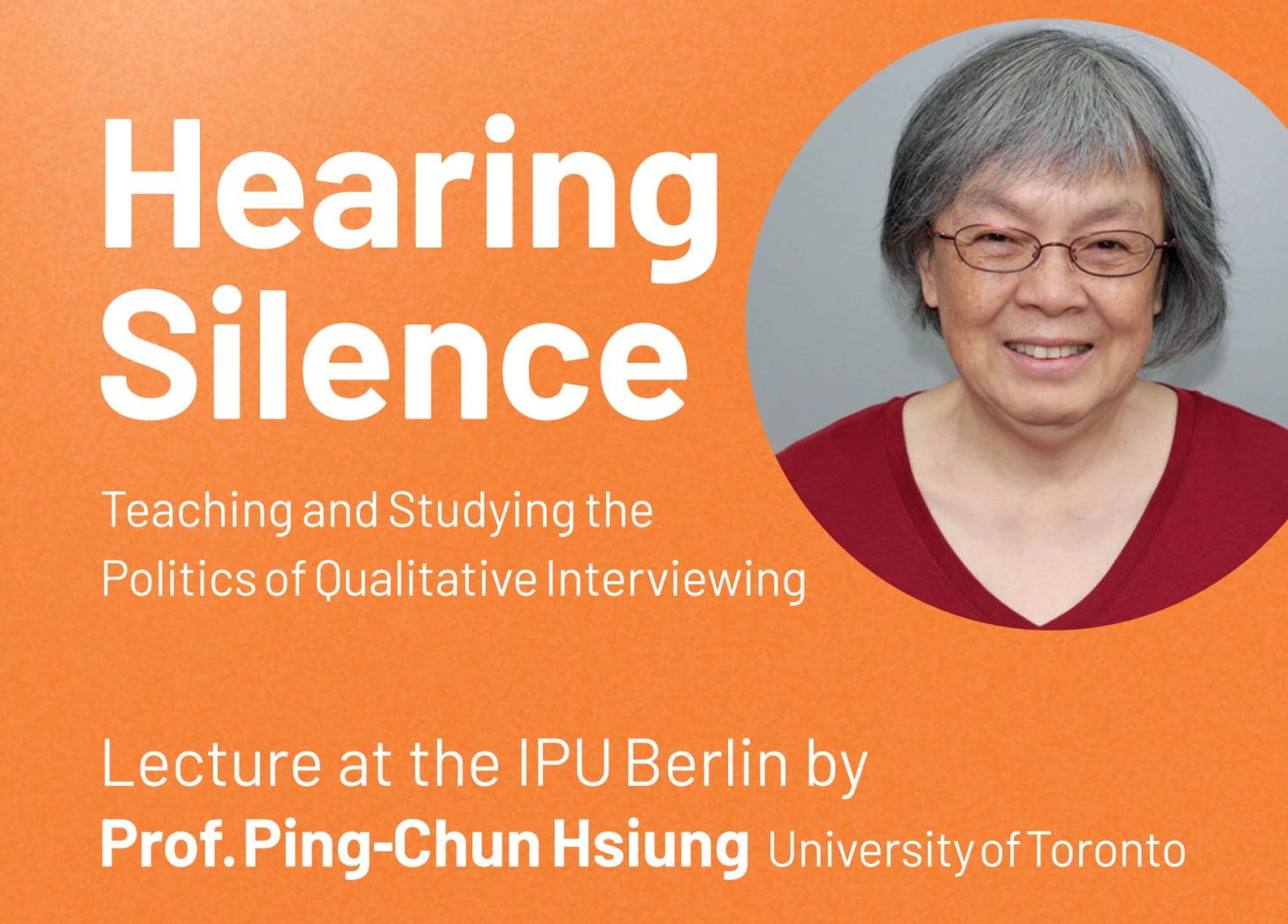
The lecture will be held in a hybrid format; the venue is the International Psychoanalytic University Berlin (House 91b, Lecture Hall 4; Alt-Moabit 91b, 2. floor, 10557 Berlin).
Please register for the lecture using the form at: https://www.ipu-berlin.de/hearing-silence-teaching-and-studying-the-politics-of-qualitative-interviewing/
When conducting qualitative interviews, researchers are ready to hear informants' narratives that align with common assumptions, idiosyncratic concepts, or their own theoretical frameworks. Accounts falling outside these pre-existing boundaries become inaudible and overlooked. In her lecture, Prof. Ping-Chun Hsiung posits that spoken and unspoken silences are hidden treasures. She will illustrate the strategies she has developed to help students recognize the mechanisms of silencing and hear these silenced accounts. She will also use the empirical case of China’s Great Leap Forward and Great Famine (1958-1962) to show the silences that arise from the challenges of accessing archival data and engaging with survivors of traumatic historical events. She will demonstrate how, despite these obstacles, it is possible to uncover a locally grounded lexicon of discontent through a secondary analysis of survivor interviews. Ultimately, Prof. Hsiung argues that the ability to hear silence is not only indispensable in academic pursuits but also essential in everyday life.
Professor Ping-Chun Hsiung teaches undergraduate and graduate courses on family, gender relations, and qualitative research methods.
Her research focuses on two areas: (1) social changes and gender relations in Chinese societies; (2) critical qualitative research. Over the last two decades, she has contributed to the development of women's NGOs in China and the establishment of women's studies program in Chinese higher education. She continues to engage in dialogue and scholarly collaboration with scholars in Taiwan and China on qualitative research.
She is currently conducting research on the history and development of qualitative research in China, with a specific emphasis on the relationship between the state, intellectuals, and sociology discipline. Professor Hsiung is also affiliated with the faculty of East Asian Studies and the Asian Institute at the Munk School of Global Affairs.
Ping-Chun Hsiung is a researcher whose ethnographic fieldwork, interviews, and archival studies have advanced gender studies and qualitative research both locally and internationally. Her work challenges dominant social science paradigms by uncovering and critically examining research traditions outside Western norms.
Her early research on gender, the state, and Taiwan’s economic development is regarded as a classic in the field. In the 1990s, she joined other diaspora feminist scholars in collaborating with activists and academics in China to establish feminist NGOs and women/gender studies curricula at universities in China—a pioneering effort that helped sustain feminist activism and nurture new generations of feminist scholars.
With decades of experience publishing and teaching qualitative interviewing, Ping-Chun is a recognized leader in the field. She created Lives & Legacies: A Guide to Qualitative Interviewing, an open-access tool designed to support qualitative interviewing globally.
| Anhang | Größe |
|---|---|
| 1.09 MB |
